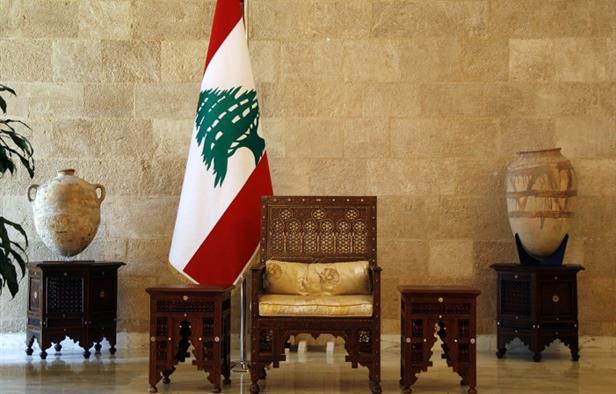A Lebanese New president on the horizon?
Alex Rowell/Now Lebanon
November 12/14
Sleiman Frangieh among names being discussed as possible Future-Hezbollah deal looms
A number of developments in recent days have fuelled speculation that the time may be nigh for Lebanon’s feuding political blocs to bring an end to an almost six-month-long vacuum in the country’s presidency.
For a start, the question of parliament’s term, which was due to expire this month, was put to rest last Wednesday when MPs voted in favor of a proposal to extend their mandate until the year 2017. With uncertainty over the fate of the legislature now dispelled, the argument goes, attention will inevitably turn to the executive branch.
Perhaps more importantly, in a rare live appearance last Monday Hezbollah Secretary-General Hassan Nasrallah officially declared, for the first time, that his party’s presidential nominee was Free Patriotic Movement leader Michel Aoun. The statement was widely seen as a kiss of death for Aoun, since as Hezbollah’s official candidate, he could no longer feasibly be considered a politically neutral ‘compromise’ or ‘consensus’ pick, as Lebanon’s largely ceremonial presidents generally are. Nasrallah also gave atypical praise to his chief rival, the US- and Saudi-allied Future Movement, and stated that “the time has come for a dialogue between the Future Movement and Hezbollah.”
The Hezbollah leader’s formal endorsement of Aoun’s candidacy was a “game changer,” according to Antoine Haddad, secretary-general of the Democratic Renewal (Tajaddod) Movement. What remains to be seen, Haddad told NOW, is whether Hezbollah will in fact follow through on its conciliatory rhetoric and negotiate a compromise candidate, or whether Nasrallah was merely bluffing, as some within the Future-led 14 March bloc have asserted. “The coming days will show if Hezbollah will continue on this path” or not, said Haddad.
Among those taking Nasrallah’s words seriously is Future MP Bassem al-Shab. Speaking to NOW Tuesday evening, immediately after a Future parliamentary bloc meeting, Shab said there were a range of views expressed during the meeting but that his own opinion is that “the flexibility we’re seeing from Hezbollah is real. I think it reflects an Iranian sentiment that there is a need for flexibility in Lebanon, as there was a need for flexibility in Iraq with [former Prime Minister Nouri] al-Maliki.” Iran is Hezbollah’s principal regional patron and exerts considerable influence over the party.
Accordingly, Shab foresees serious negotiations taking place within “weeks, not months” to agree on a candidate “who can navigate a Sunni-Shiite conflict and who has the confidence of both parties […] someone with a certain degree of legitimate representation, but who is also agreeable to both sides.”
Asked by NOW who might fit that profile, Shab cited the leader of the 8 March-aligned Marada Movement, MP Sleiman Frangieh. When NOW queried how Frangieh, a staunch ally of Syrian President Bashar al-Assad, could be acceptable to 14 March, Shab hinted at a hypothetical agreement by which Frangieh’s presidency would be paired with Future leader MP Saad Hariri as prime minister.
“If a deal is struck, you cannot have all the top positions leaning toward the same side,” Shab told NOW. “Just as we now have [Future members] Nohad al-Machnouk and Ashraf Rifi in government — who would have thought the other side would be accepting of them?”
Aside from Frangieh, other names mentioned in recent press reports include Lebanese Armed Forces Commander Gen. Jean Kahwaji — considered favorable to Hezbollah but reportedly also amenable to Saudi Arabia, where he recently visited to formally accept a $3 billion grant to the military — and 75-year-old former lawyer and journalist Jean Obeid, seen as pro-Damascus but also, according to leaked US Embassy cables, well-esteemed by Riyadh.
At the same time, many observers, including Haddad, maintain that Nasrallah’s speech may have simply been a diversion tactic, aimed at buying time while awaiting the outcomes of various regional initiatives, from Iran’s negotiations with the P5+1 countries on its nuclear program to UN plans for truces in Syria.
“Hezbollah may want to see some calming of the situation until [it’s clearer] what’s going on at the regional level […] it could be just this,” Haddad told NOW.
Shab, by contrast, sees the appointment of a Lebanese president as part and parcel of those same regional initiatives.
“It’s no longer a local issue now, it’s a regional one,” he told NOW.
“Something is going to give soon.”
Alex Rowell tweets @disgraceofgod




















